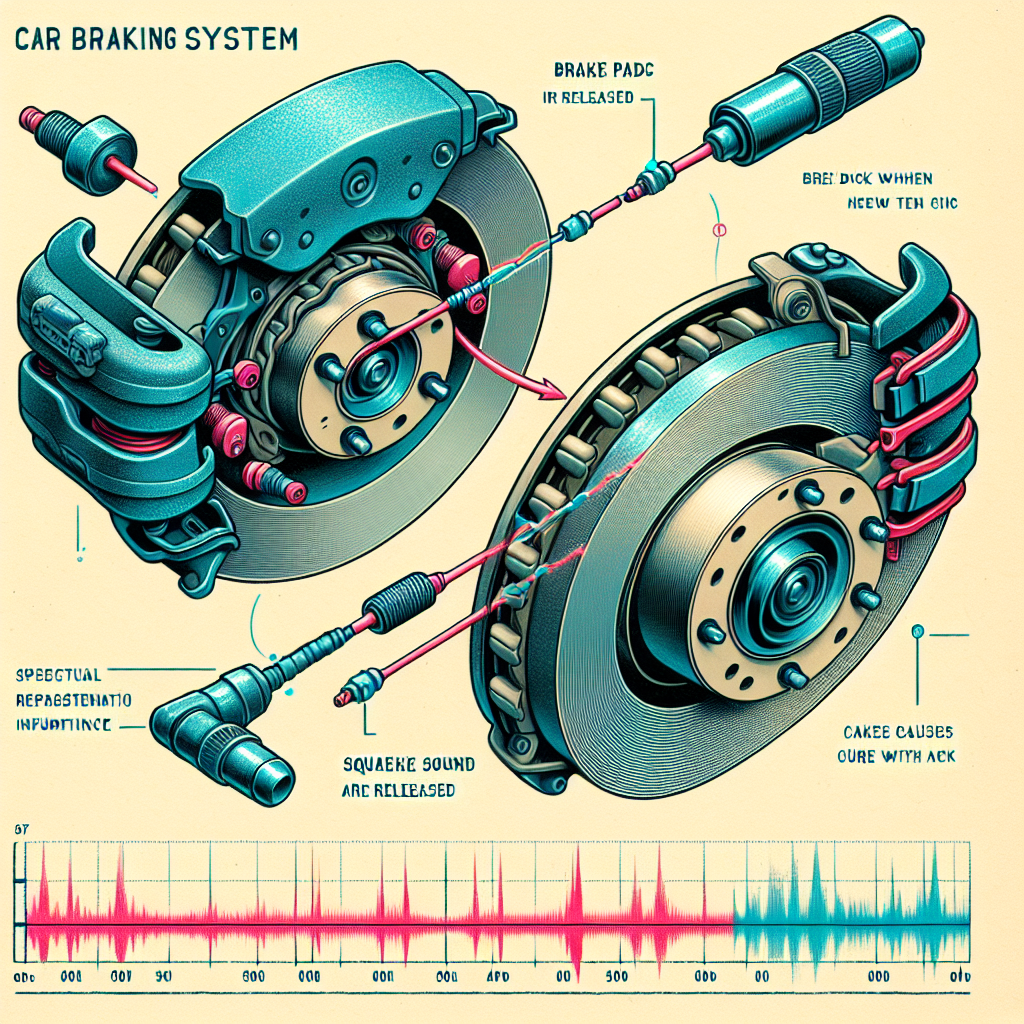Why Do My Brakes Squeak When I Release Them?
When it comes to car maintenance, the auditory signals your vehicle emits can be a telltale sign that it’s time for a check-up. Perhaps one of the most disconcerting of these is the high-pitched squeal of brakes when you let off the pedal. It’s the sort of sound that can cause a driver’s ears to perk up, and for good reason.
In this post, we’re going to delve into the key reasons your brakes could be vocalizing their discomfort and what you can do to fix this problem. Be prepared for a journey into the mechanics of your vehicle that will leave you better informed and confident to tackle this common automotive issue.
The Mechanics Behind Braking
Before answering the question at hand, it’s important to understand how brakes work. When you press the brake pedal, a complex system of components comes into play, including brake pads, rotors, calipers, and brake fluid, orchestrating the slowdown and eventual stop of your vehicle. These elements can all be culprits in the notorious squeaking sound. Let’s explore the reasons pulling behind this squeaky curtain.
Worn-out or Hardened Brake Pads
One of the primary causes of squeaky brakes is wearing of the brake pads. As you use your brakes, the pads slowly wear down due to friction. Some brake pads have a metal indicator that makes a loud sound when it’s time for a change. Alternatively, as pads age, they may harden and become glazed, leading to the squeaking sound when their surface isn’t as smooth or pliable to make an even contact with the rotors.
Vibrations in the Brake System
Another common offender for squealing brakes is vibration. When the brake pads grip the rotors, it’s supposed to happen smoothly. However, if there’s a slight misalignment or lack of lubrication on the caliper slides or pins, it could result in a vibration and the subsequent noise. Educational automotive resources often note that proper maintenance can prevent such issues.
High-performance Brake Pads
Interestingly, if you’ve upgraded to high-performance brake pads made of metallic materials, they might be the root of the noise. These pads are typically harder and more resistant to wear and heat, which is great for durability and functionality, but not so much for noise. They often tend to squeak more than their ceramic or organic counterparts.
Weather and Environmental Factors
Even something as simple as the weather can affect your brakes. Moisture from rain, snow, or even humidity can cause a thin layer of rust to form on the brake rotors. When the brake pads scrape against this rust, they can emit a squeal. Although this usually clears up after a few brake applications, it’s worth being aware of. Look into environmental effects on vehicles to understand this issue more comprehensively.
Solutions for Squeaking Brakes
Now that we understand the possible causes, let’s talk solutions.
Brake Pad Replacement
If worn brake pads are the issue, the fix is straightforward – replace them. Based on the severity of the wear, you might also need to replace other components like the rotors or calipers to ensure the entire system functions smoothly. Always use quality parts to avoid repeating the issue prematurely.
Proper Installation and Repair
It’s crucial to ensure that all the parts of your brake system are properly installed and in good working order. Sometimes, the squeaking is due to incorrect fitting of pads or calipers. Regular brake inspections and service by a professional mechanic can mitigate these issues before they become noisy nuisances.
Seasonal Maintenance
For those living in climates with high moisture, it’s worth visiting a mechanic to ensure that your brakes are ready for the shifts between seasons. Occasional cleaning and the application of an anti-seize compound to the brake system can help keep moisture-induced squeaks at bay.
Review Driving Habits
Finally, consider your driving habits. Frequent hard braking can wear down pads more quickly and lead to more frequent occurrences of squeaking noises. Sometimes the solution can be as simple as adjusting how you use your brakes.
Conclusion
Squeaking brakes are more than just an annoyance; they’re a call to action to pay closer attention to your car’s brake system. They can signal anything from normal wear and tear to more significant issues that require immediate attention. Following the advice outlined above can save you money and hassle in the long run, ensuring that each time you reach for the brake pedal, you do so with confidence in the silence of your stop.
Regular maintenance and inspections, paired with a responsive approach to caring for your vehicle, will help keep your brakes quiet and more importantly, effective. Remember that responsible vehicle ownership involves listening and responding to the needs of your car, and squeaky brakes are a perfect example of such a plea for care.
So if your brakes start to sound like a classroom full of eager elementary school clarinet players, don’t ignore it. Take action and consult with a professional if you’re unsure of the cause. Safe and sound driving depends on it.
And for those wanting to delve deeper into their DIY car repair skills, websites like AutoZone and Haynes Manuals provide ample resources and guides. Remember, with a little knowledge and the right tools, you can save yourself both the trouble of a trip to the mechanics and the worry that comes with uncertain car noises.
Squeaks might be adorable in a basket of playful kittens, but when it comes to your car, it’s time to swap curiosity for action and ensure your vehicle stays elegantly quiet and reliably safe on all your road adventures.

